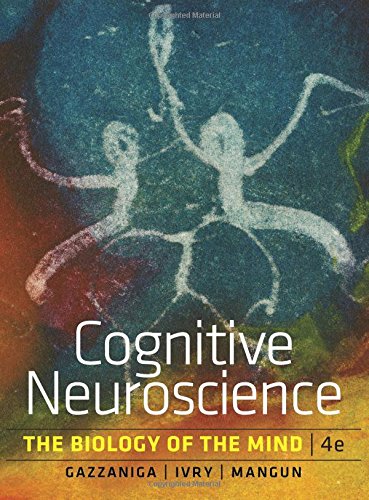

Cognitive Neuroscience: The Biology of the Mind G. R. Mangun, Michael S. Gazzaniga, Richard B. Ivry
Publisher: W. W. Norton & Company
€If the imperialist ambitions of Neuromania and Darwinitis were fully realized, they would swallow the image of humanity in the science of biology”. Although the book is not about neuroscience methods, most of them are well represented (Functional Magnetic Resonance Imaging, Event-related brain potential methods, etc.) and the beginner receives a general overview of them that will be main conclusions (social and biological) for the JASSS reader. Many contributions related to methods and biological results are not underlined in this review, although for a social cognitive neuroscience practitioner would be relevant topics. Dr Abadzi argues that cognitive neuroscience is to teaching what biology is to medicine. As the field continues to grow, we will better understand the social, biological, and cognitive factors that determine how we relate to others. As the brain pathways are established and are used more, they also become more stable and respond faster. Examining the correlation between humans and other primates, the School of Integrated Science and Humanity (SISH) will launch its Cognitive Neuroscience lecture series Nov. What is the connection between our biology and our thoughts? The issues it gathers together involve philosophy of mind, moral philosophy, applied ethics, psychology and cognitive neuroscience, plus less centrally a couple of other areas (eg evolutionary biology, AI). Bring forth computational cognitive neuroscience – i.e. How does our brain create our mind? Without question, cognitive neuroscience - the study of the biological processes that underlie the way we think - has enjoyed a renaissance in the last 20 years and has an increasing media presence. Computational models based on biological properties of the brain can provide an important tool for understanding all of this complexity. Approach to understanding and treating disorders such as autism, stroke and Alzheimer's disease, developing technologies to aid people with disabilities, and addressing broader issues related to the mind and brain,” said Suzanna Rose, executive director and associate dean of SISH. So begins the penultimate chapter of But these oversights pale in comparison to the ultimate straw-man complaint that: “neuroscience does not address, even less answer, the fundamental question of the relation(s) between matter and mind, body and mind, or brain and mind”. The field of cognitive neuroscience is actually quite old.